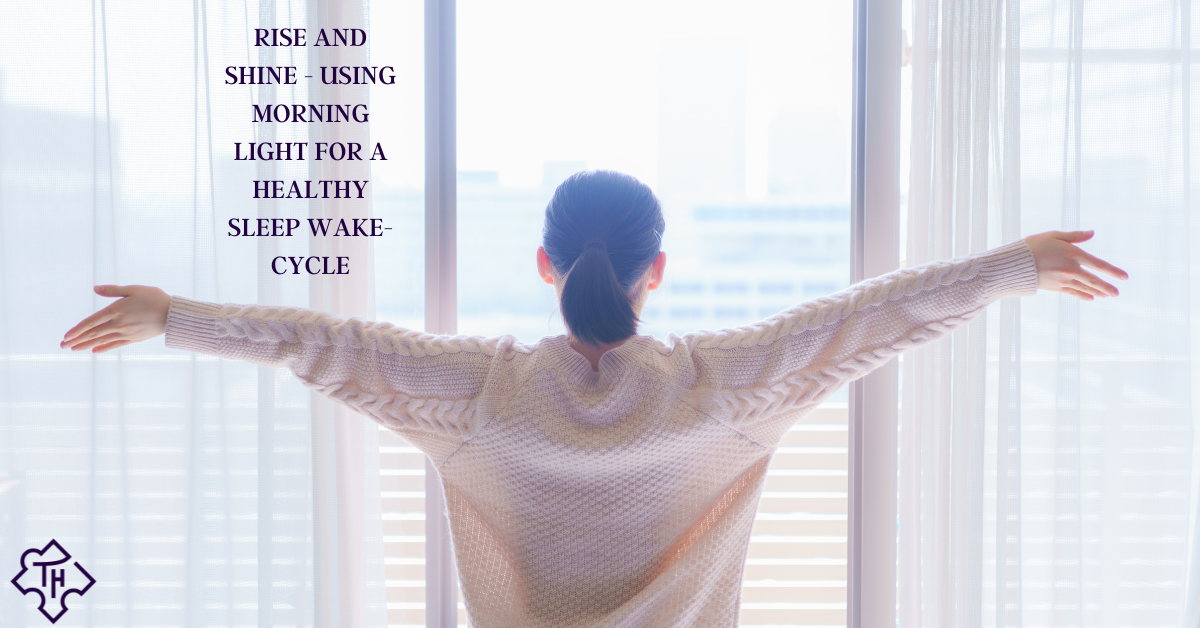Rise and Shine – Using Morning Light for a Healthy Sleep Wake-Cycle
By Claudine Jones, Functional Nutrition Coach
Is morning light good for you? I am not talking about the artificial light from your phone but the natural light created by the sun. The simple practice of waking up, heading outside to get morning light into your eyes and on to your skin has been shown to have profound health benefits. Now that our days are getting longer here in Pennsylvania, please consider adding your daily dose of AM morning light to your supplement regimen. Here are some of the amazing benefits:
- Overall improvement in mood – being out in morning light resets your body’s circadian rhythm and can help improve your mood and reduce symptoms of depression. The morning sun helps to regulate the production of serotonin which plays a role in mood regulation.
- Increase in wakefulness and the ability to focus throughout the day – morning light exposure triggers the timed release of cortisol, a healthy level of cortisol, into your system, which acts as a wake-up signal and will promote wakefulness and the ability to focus throughout the day. Specialized cells in your retinas also tell your brain to stop making the sleep hormone melatonin when you are exposed to morning light.
- Better sleep at night – Getting exposure to sunlight in the morning can help you sleep at night because it helps reset your body’s inner sleep clock for a healthy sleep wake-cycle.
- Stimulates the growth and repair of mitochondria – which are energy producing organelles in the cell.
- Heals inflammatory skin conditions by reducing inflammation and promoting healing.
How to Harness the Benefits of Early Morning Light:
- Get up at dawn – the closer to sunrise, the better the benefits. This is when there is the most red light but getting sunlight as soon as you wake up still has benefits.
- Don’t forget to use your naked eyes – Get the maximum benefits by removing all barriers to the eyes and don’t look directly at the sun but just be in the sun’s light. Take off any sunglasses, glasses or contacts to get the naked eyes exposed. Spend some time in the morning sun before putting sunglasses, glasses or contacts on.
- When it is not too cold, expose some of your skin – clothing can block the skin from absorbing the rays of the sun, so the more skin exposed the better for vitamin D absorption.
For those who work the night shift or cannot get their eyes in the sun at sunrise, here is a link for light therapy lamps that will simulate the sun and help with some of the same benefits:
11 Best Light Therapy Lamps 2024, Reviewed by Experts (goodhousekeeping.com)

